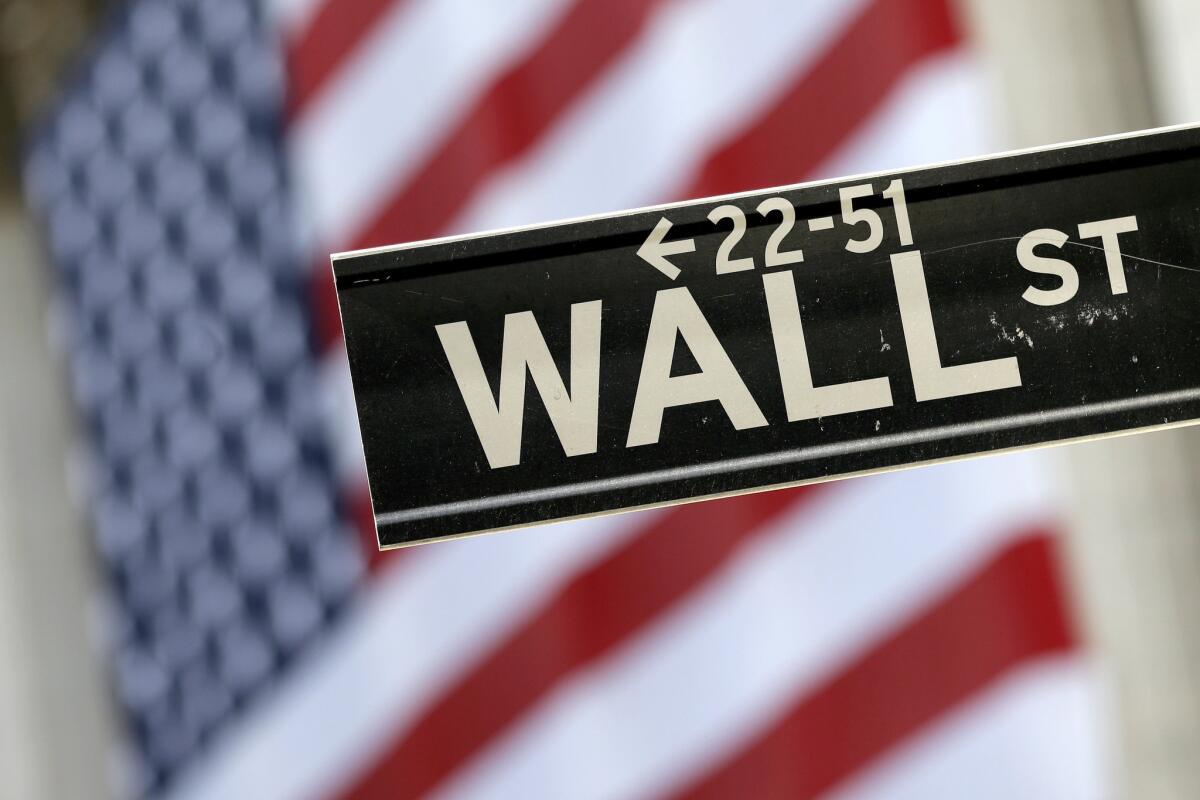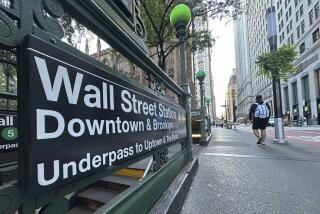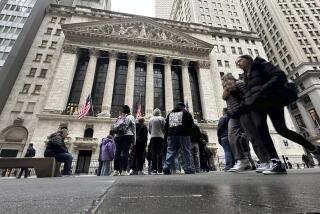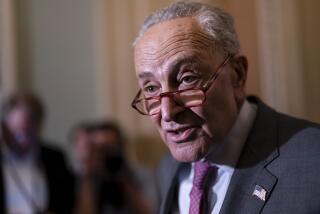U.S. stocks climb further the day after their mighty surge

Stocks on Wall Street rose Wednesday, scoring their first back-to-back gains since a brutal, coronavirus-fueled sell-off began five weeks ago, but much of an early rally faded late in the day as a last-minute dispute threatened to hold up a $2-trillion economic rescue package in Congress.
The Standard & Poor’s 500 index rose 1.2%, bringing its two-day gain to 10.6%. It had been up 5.1% earlier in the day as Congress moved closer to approving the plan to provide aid to the coronavirus-ravaged economy The market is down nearly 27% from the record high it reached a month ago.
Many on Wall Street say they don’t think stocks have hit bottom yet, but optimism rose after the White House and Senate leaders announced an agreement on the aid bill early Wednesday. A vote had been expected in the Senate by the end of the day, but then some lawmakers balked at elements of the proposed bill.
Investors were anxiously waiting for this kind of aid, which would help blunt the blow to the economy as businesses shut down to slow the spread of the coronavirus.
But even optimists say the package provides just the second leg of three that markets need to regain lasting confidence. The Federal Reserve and other central banks are also offering tremendous support by cutting interest rates and supporting lending markets, but investors say they need to see the number of new infections peak and start declining before they can feel comfortable knowing how deep the looming economic downturn will be.
“There’s a lot of bad news, there’s very little tangible good news, and there’s a lot of uncertainty in between,” said Jack Ablin, chief investment officer at Cresset.
Investors are also still waiting to see the details of Washington’s plan, which will include direct payments to most Americans and aid for hard-hit industries. It’s unclear when the House of Representatives may vote on the plan.
With widening swaths of the economy shutting down and layoffs mounting, economists are sure a steep economic drop is coming. What’s unsure is how long it will last.
That uncertainty has led to wild swings in the stock market over the last month. The S&P 500’s 9.4% surge Tuesday was bigger than the index’s full-year gains in 10 of the last 20 years.
But the market has also had a couple of recent days that packed entire years’ worth of losses, including one drop of 12% and one of 9.5%. The last time the S&P 500 had a back-to-back gain was Feb. 12, a week before the index set its record high.
The uncertainty has carried over even to trading within a day or even an hour.
On Wednesday, for example, the S&P 500 was down as much as 1.6% before it turned decisively higher. It ended the day up 28.23 points at 2,475.56. The Dow Jones industrial average advanced 495.64 points, or 2.4%, to 21,200.55 — but it had been up more than 1,300 points earlier in the day.
The Nasdaq swung from a gain of 3.4% to a loss of 0.5% as it dropped 33.56 points to 7,384.30. The Russell 2000 index of smaller-company stocks rose 13.79 points, or 1.3%, to 1,110.34.
Boeing soared 24.3%, fueled in part by expectations that it stands to gain from the aid package brokered on Capitol Hill. Other travel-related stocks also surged, recouping a fraction of their huge losses over the last month. Royal Caribbean Cruises jumped 23% on Wednesday, but it’s still down 68.2% for the year.
Nike climbed 9.2% after it said stronger online sales in China during the coronavirus outbreak helped it offset plunges in revenue caused by the shutdown of its stores across the country. The company said it would follow a similar playbook in other countries as the outbreak spreads around the world. It also said sales are bouncing back in China, where the outbreak has eased and most Nike stores have reopened.
Treasury yields were mixed. The yield on the 10-year Treasury rose to 0.84% from 0.81%.
More to Read
Inside the business of entertainment
The Wide Shot brings you news, analysis and insights on everything from streaming wars to production — and what it all means for the future.
You may occasionally receive promotional content from the Los Angeles Times.










